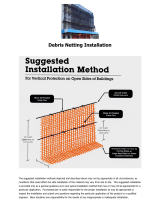
• Reboot your phone. Switch off the phone, and remove the battery. After about a
minute, replace the battery, and switch on the phone.
• Update your phone software
• Restore the original factory settings
If your issue remains unsolved, contact Nokia for repair options. Go to www.nokia-
asia.com/repair. Before sending your phone for repair, always back up your data, as
all personal data in your phone may be deleted.
Access codes
The security code helps to protect your phone against unauthorised use. You can
create and change the code, and set the phone to request the code. Keep the code
secret and in a safe place separate from your phone. If you forget the code and your
phone is locked, your phone will require service. Additional charges may apply, and
all the personal data in your phone may be deleted. For more information, contact a
Nokia Care point or your phone dealer.
The PIN code supplied with the SIM card protects the card against unauthorised use.
The PIN2 code supplied with some SIM cards is required to access certain services. If
you enter the PIN or PIN2 code incorrectly three times in succession, you are asked
for the PUK or PUK2 code. If you do not have them, contact your service provider.
The module PIN is required to access the information in the security module of your
SIM card. The signing PIN may be required for the digital signature. The barring
password is required when using the call barring service.
To set how your phone uses the access codes and security settings, select Menu >
Settings > Security.
Set which SIM card to use
You can set which SIM card to use for outgoing calls or messages. If you name your
SIM cards, you can see at a glance which is, for example, for work and which is for
personal use.
Press the SIM manager key.
Select SIM1 or SIM2.
To be prompted to select a SIM card before, for example, making a call or sending a
text message, select Ask every time.
Rename a SIM card
Select Options > Rename.
12 Basic use




















